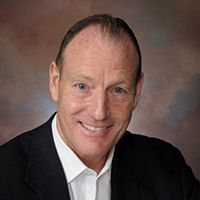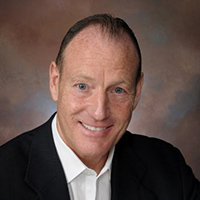Consider Using RMDs to Buy Life Insurance
If you don't need the income, this strategy can help you create more wealth to leave your loved ones.


Profit and prosper with the best of Kiplinger's advice on investing, taxes, retirement, personal finance and much more. Delivered daily. Enter your email in the box and click Sign Me Up.
You are now subscribed
Your newsletter sign-up was successful
Want to add more newsletters?

Delivered daily
Kiplinger Today
Profit and prosper with the best of Kiplinger's advice on investing, taxes, retirement, personal finance and much more delivered daily. Smart money moves start here.

Sent five days a week
Kiplinger A Step Ahead
Get practical help to make better financial decisions in your everyday life, from spending to savings on top deals.

Delivered daily
Kiplinger Closing Bell
Get today's biggest financial and investing headlines delivered to your inbox every day the U.S. stock market is open.

Sent twice a week
Kiplinger Adviser Intel
Financial pros across the country share best practices and fresh tactics to preserve and grow your wealth.

Delivered weekly
Kiplinger Tax Tips
Trim your federal and state tax bills with practical tax-planning and tax-cutting strategies.

Sent twice a week
Kiplinger Retirement Tips
Your twice-a-week guide to planning and enjoying a financially secure and richly rewarding retirement

Sent bimonthly.
Kiplinger Adviser Angle
Insights for advisers, wealth managers and other financial professionals.

Sent twice a week
Kiplinger Investing Weekly
Your twice-a-week roundup of promising stocks, funds, companies and industries you should consider, ones you should avoid, and why.

Sent weekly for six weeks
Kiplinger Invest for Retirement
Your step-by-step six-part series on how to invest for retirement, from devising a successful strategy to exactly which investments to choose.
For years, you contributed diligently to your 401(k) plan at work, enjoying the convenience, the lovely employer match and the knowledge that, as you made your contributions to the plan, it reduced your taxable income.
Then you watched your earnings grow, tax-deferred.
Each and every dollar remained in your account, at work for you, enlarging your retirement nest egg. It was a great deal for you, but not such a great deal for lawmakers who have an insatiable appetite for tax revenue.
From just $107.88 $24.99 for Kiplinger Personal Finance
Become a smarter, better informed investor. Subscribe from just $107.88 $24.99, plus get up to 4 Special Issues

Sign up for Kiplinger’s Free Newsletters
Profit and prosper with the best of expert advice on investing, taxes, retirement, personal finance and more - straight to your e-mail.
Profit and prosper with the best of expert advice - straight to your e-mail.
Congress wants you to save money for retirement, and tax relief is a great motivator. But no tax relief is open-ended. Eventually, we must all "render unto Caesar."
Thus, required minimum distribution (RMD) rules were established.
In essence, RMD rules mandate that once someone turns 70½ years old, he or she must begin drawing an income from their qualified-plan assets. (There are a few exceptions, but generally speaking, most plans are subject to RMD mandates.) This income is considered ordinary income and is subject to taxation. And the penalty for not taking them is severe—50% of the untaken RMDs.
There is an IRS formula that is used to calculate each year's exact RMD percentage. Although unique to each individual, generally speaking, for someone who is in their early to mid-70s, an RMD is roughly 4% of all qualified-plan assets. So, if someone owned $500,000 in qualified-plan assets, they would be required to draw about $20,000 in annual income.
For most retirees, RMD mandates are not a concern, as they always intended to use those assets to produce retirement income.
But some retirees don't need the money. They have enough income being generated from other sources. So, what can they do?
Take, for example, Jim. He had owned his own business and contributed to qualified plans at work. Once he retired, he sold his business for quite a large sum of money and simply didn't need the RMD income he was required to take when he turned 70½.
Still, Jim's RMDs were about $30,000 per year, and his overall tax rate was roughly 30%. Given those financial parameters, Jim's RMDs left him with about $20,000 per year. He decided to accumulate the payments in certificates of deposit, thinking he would leave the money as an additional inheritance to his children. This all sounded great —but was it the best way to go?
Another option: Jim could have redirected the $20,000 a year into a guaranteed premium universal life insurance policy, with a death benefit that would be substantially greater than years of accumulated RMDs. Because his health was good, life insurance was a viable path to consider. In the end, Jim could have qualified for $650,000 in life insurance death benefits, proceeds that would be paid tax-free to his beneficiaries.
Then, Jim could have established an irrevocable life insurance trust and moved ownership of his life insurance policy into the trust. If after 11 years of annual premium payments to the trust, Jim died, he'd leave $650,000 of life insurance proceeds to his beneficiaries, subject to the trust mandates. Over the course of 11 years, Jim would have made a total of $220,000 of premium payments to create $650,000 of wealth.
By redirecting unneeded RMDs into life insurance, you too can use this strategy to create more wealth for your heirs. Of course, it may not be the right move for everyone, but this certainly illustrates that by being creative about RMDs, you can make your retirement strategy more efficient.
Gerard (Gerry) Dougherty is the founder and president of Boston Independence Group Inc. He is an Investment Adviser Representative and a licensed insurance professional. He hosts a weekly radio show called "Uncomplicated Money" and recently published his first book, Uncomplicated Money: Retirement Is Within Reach.
Kim Franke-Folstad contributed to this article.
Profit and prosper with the best of Kiplinger's advice on investing, taxes, retirement, personal finance and much more. Delivered daily. Enter your email in the box and click Sign Me Up.

Gerry Dougherty is the founder and president of Boston Independence Group Inc. He is an Investment Adviser Representative and a licensed insurance professional. He has a bachelor's degree in economics from the University of Massachusetts at Amherst and holds a certificate in Financial Management and Leadership from The American College and Pennsylvania State University. He hosts a weekly radio show called "Uncomplicated Money" and recently published his first book, Uncomplicated Money: Retirement Is Within Reach.
-
 Quiz: Do You Know How to Avoid the "Medigap Trap?"
Quiz: Do You Know How to Avoid the "Medigap Trap?"Quiz Test your basic knowledge of the "Medigap Trap" in our quick quiz.
-
 5 Top Tax-Efficient Mutual Funds for Smarter Investing
5 Top Tax-Efficient Mutual Funds for Smarter InvestingMutual funds are many things, but "tax-friendly" usually isn't one of them. These are the exceptions.
-
 AI Sparks Existential Crisis for Software Stocks
AI Sparks Existential Crisis for Software StocksThe Kiplinger Letter Fears that SaaS subscription software could be rendered obsolete by artificial intelligence make investors jittery.
-
 One of the Most Powerful Wealth-Building Moves a Woman Can Make: A Midcareer Pivot
One of the Most Powerful Wealth-Building Moves a Woman Can Make: A Midcareer PivotIf it feels like you can't sustain what you're doing for the next 20 years, it's time for an honest look at what's draining you and what energizes you.
-
 I'm a Wealth Adviser Obsessed With Mahjong: Here Are 8 Ways It Can Teach Us How to Manage Our Money
I'm a Wealth Adviser Obsessed With Mahjong: Here Are 8 Ways It Can Teach Us How to Manage Our MoneyThis increasingly popular Chinese game can teach us not only how to help manage our money but also how important it is to connect with other people.
-
 Looking for a Financial Book That Won't Put Your Young Adult to Sleep? This One Makes 'Cents'
Looking for a Financial Book That Won't Put Your Young Adult to Sleep? This One Makes 'Cents'"Wealth Your Way" by Cosmo DeStefano offers a highly accessible guide for young adults and their parents on building wealth through simple, consistent habits.
-
 To Love, Honor and Make Financial Decisions as Equal Partners
To Love, Honor and Make Financial Decisions as Equal PartnersEnsuring both partners are engaged in financial decisions isn't just about fairness — it's a risk-management strategy that protects against costly crises.
-
 For More Flexible Giving, Consider Combining a Charitable Remainder Trust With a Donor-Advised Fund
For More Flexible Giving, Consider Combining a Charitable Remainder Trust With a Donor-Advised FundIf a charitable remainder trust puts too many constraints on your family's charitable giving, consider combining it with a donor-advised fund for more control.
-
 These Thoughtful Retirement Planning Steps Help Protect the Life You Want in Retirement
These Thoughtful Retirement Planning Steps Help Protect the Life You Want in RetirementThis kind of planning focuses on the intentional design of your estate, philanthropy and long-term care protection.
-
 A Wake-Up Call and a Healthy Dose of Terror: How to Survive Your First Days in Prison
A Wake-Up Call and a Healthy Dose of Terror: How to Survive Your First Days in PrisonThis young man needed to be scared straight after his mother expressed her fear that he was on a path to prison. Hearing these eight do's and don'ts worked.
-
 How Money Guilt Holds Women Back (and How You Can Send It Packing)
How Money Guilt Holds Women Back (and How You Can Send It Packing)Women shouldn't let guilt limit the way they manage their hard-earned wealth. It's time to separate emotion from financial decision-making.